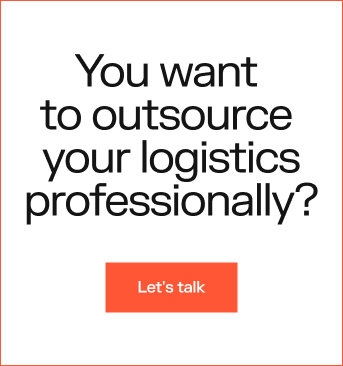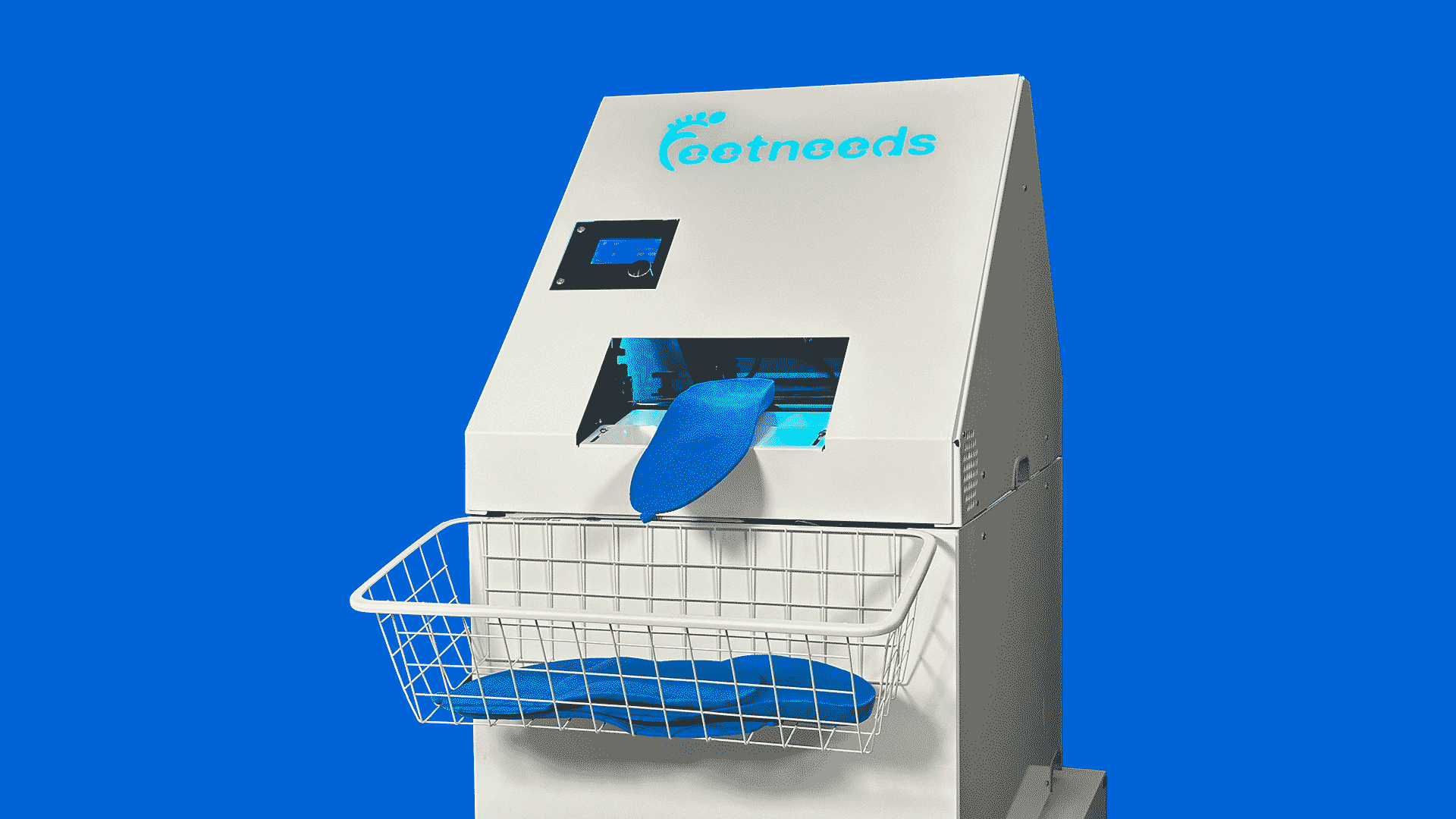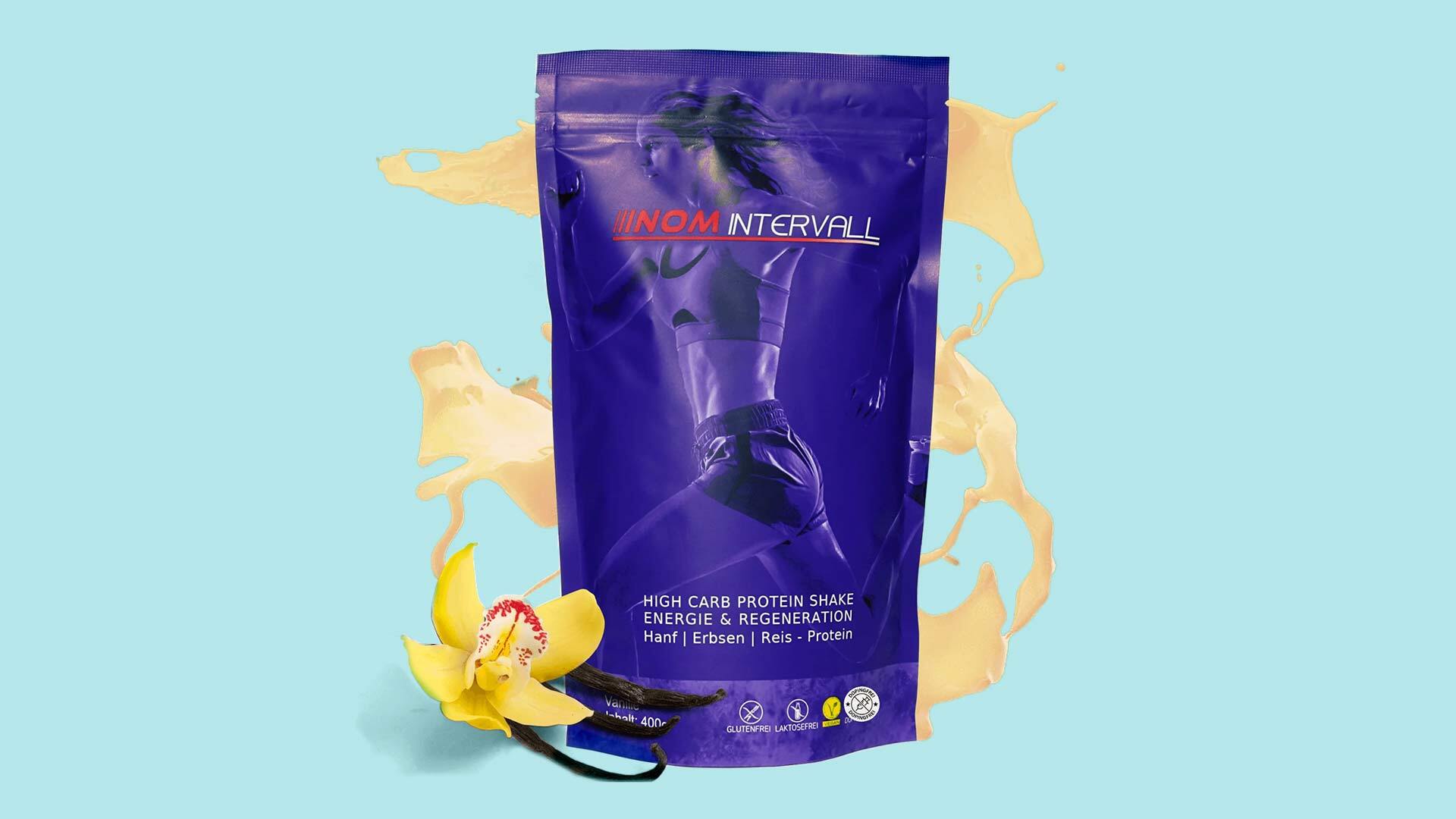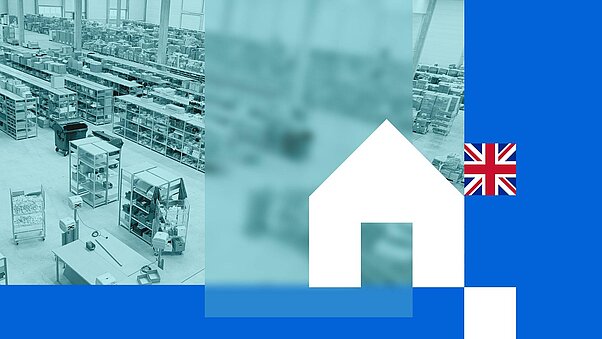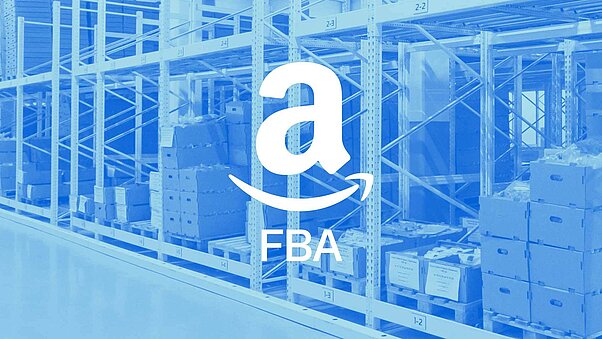
What E-Commerce Fulfilment Means, Its Advantages, and Its Models in Comparison
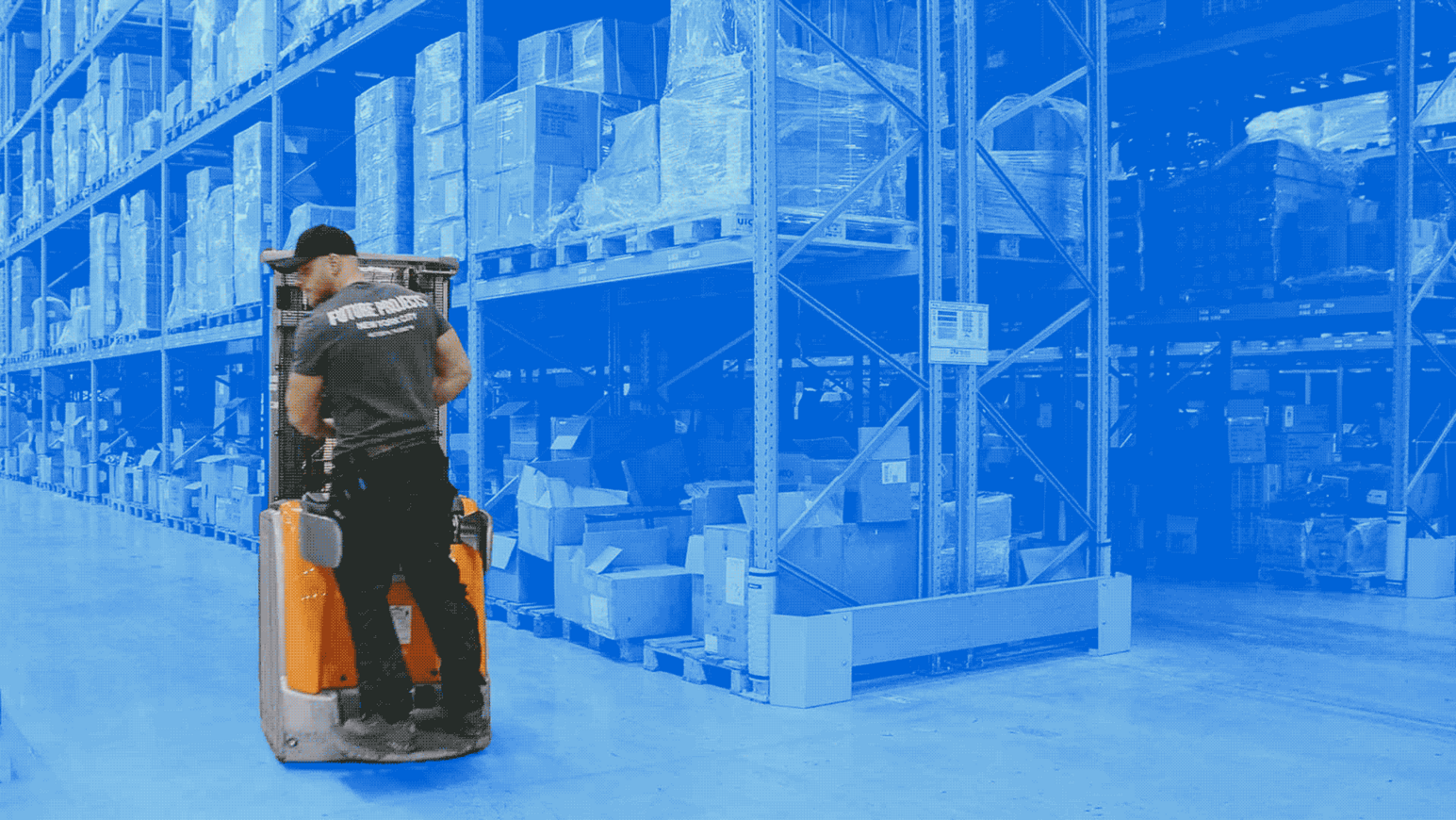
If you want to succeed in online retail, there's no getting around logistics. As order volumes grow, it quickly becomes clear whether your processes are truly efficient. Modern fulfilment services cover exactly these operations – from storing products to packing, shipping and handling returns.
In this article, we explain what e-commerce fulfilment is, how it works, the different models available, and what to look out for when choosing a fulfilment provider – all in a clear and straightforward way1
What Is E-Commerce Fulfilment? The Definition
E-commerce fulfilment refers to the entire process required to successfully deliver an online order. “Fulfilment” simply means the completion of the logistics behind a purchase – in other words, the process of fulfilling an order.
The term e-commerce fulfilment typically covers every step that happens after a customer clicks the “Order” button:
- Product storage
- Picking (retrieving items from the warehouse)
- Packing the order
- Shipping to the customer
- Receiving and processing returns
It also includes:
- Inventory management (What’s in stock? What’s running low?)
- Shipment tracking and status updates
- Customer service related to stock, delivery and returns
An e-commerce fulfilment provider handles all of these logistical steps and manages order processing automatically. To make this automation work, order data and other relevant information must be transferred between systems. That’s why, at the beginning, the retailer’s online shop is connected to the fulfilment provider’s software. From there, the entire fulfilment process can be monitored and managed in real time.
The Fulfilment Process at a Glance
E-commerce fulfilment involves all the steps required to efficiently process an online order. Below, we explain each phase of the process in more detail:
How E-Commerce Fulfilment Makes the Difference
Professional e-commerce fulfilment is much more than just handling the logistics behind your orders. It’s a strategic lever for growth, customer satisfaction and international scalability. Here's how your DTC brand can benefit from it:
- Cost efficiency & scalability: Instead of building your own warehouse and hiring staff, you tap into established logistics infrastructure. You save costs and benefit from volume discounts and all the advantages of efficient e-commerce fulfilment services.
- More focus on your core business: By outsourcing logistics, you free up time for product development, marketing and scaling your e-commerce brand.
- Modern technology & expertise: E-commerce fulfilment providers like Quivo rely on automated systems and years of experience. You benefit from professional processes – without the need for major in-house investments.
- Flexible capacity: Fulfilment services adapt quickly to peaks in demand. You stay fast and ready to deliver – even on Black Friday or during the Christmas season.
- Easy international expansion: Global logistics and customs handling are already in place. That means you can serve new markets without getting bogged down in admin or bureaucracy.
Stronger customer experience: Fast delivery and easy returns make for happy customers. Your brand earns trust, your revenue grows, and you're free to expand without limits.
When E-Commerce Fulfilment Makes Sense:
- Rising order volumes: When packing and shipping takes up too much of your time and blocks your day-to-day business.
- Lack of space: When storage space is tight, or you want to avoid the cost of setting up your own infrastructure.
- High shipping costs: When you’re stuck with expensive rates and want to benefit from better conditions.
- Selling internationally: When you want to ship abroad, but don’t want the hassle of managing customs and international logistics yourself.
- You want to appear more professional: When you're ready to offer a great delivery experience and take your shop to the next level.
- You want to switch fulfilment providers: If you're unhappy with your current e-commerce fulfilment partner and looking for a better solution. We've seen many businesses misled by low headline prices or generic claims like “the number one in the industry.”
E-Commerce Fulfilment Models Compared – Which One Is Right for You?
Not every business needs the same fulfilment model. Depending on your size, product range and strategic focus, a different solution might make more sense. Below is an overview of the most common e-commerce fulfilment models – including their pros and cons:
| Modell | Description | Advantages | Disadvantages |
|---|---|---|---|
In-house Fulfilment | You handle storage, packing and shipping yourself – everything stays in-house. | Full control, direct customer contact, no external dependencies. | Time-consuming, labour-intensive, limited scalability. |
E-Commerce Fulfilment | External providers handle the entire process – from warehousing to delivery. | Scalable, expert solutions, less operational effort. | Less control, onboarding with fulfilment software required. |
Marketplace-Fulfilment (z. B. Amazon FBA) | Products are stored with the marketplace, and shipped via their system. | Broad reach, fast shipping (e.g. Prime), customer trust. | Fees, limited brand visibility, reduced access to customer data. |
Hybrid Fulfilment | A combination of in-house and outsourced logistics, depending on your needs. | Flexibility, potential for cost and process optimisation. | More complex to manage, systems need to be well integrated. |
Which model is right for you depends on how much control you want to keep, how fast you plan to grow, and how important flexibility or speed is to your business.
Many smaller shops start with in-house fulfilment and switch to a 3PL or hybrid setup as order volumes increase. Sellers using platforms like Amazon often benefit from built-in fulfilment infrastructure – though this usually comes with certain trade-offs.
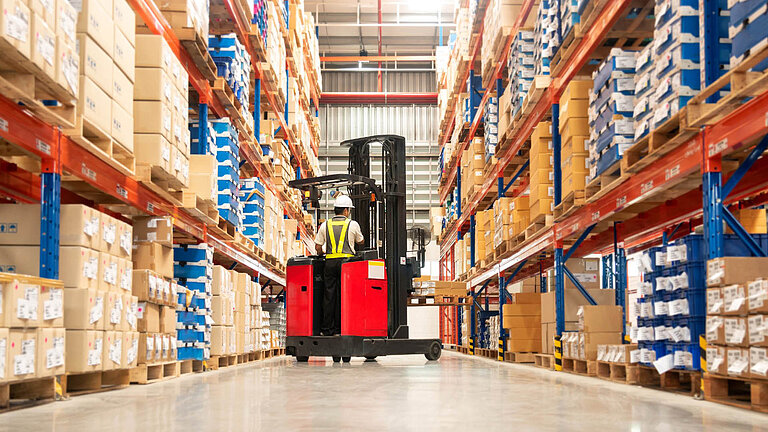
E-Commerce Fulfilment vs. 3PL – What’s the Difference?
The terms e-commerce fulfilment and third-party logistics (3PL) are often used interchangeably – but it’s worth making a distinction:
E-Commerce Fulfilment:
E-commerce fulfilment is a subcategory or specialised branch within the wider 3PL industry. It’s a type of logistics service specifically designed for online retail, covering every step from storage to returns – with a focus on fast, automated delivery and the typical B2C flow.
- Scalable for start-ups and D2C brands
- Easily integrated with Shopify, WooCommerce, Amazon, etc.
- Focus on fast shipping and high customer satisfaction
- Usually includes returns handling and shipment tracking
3PL (Third-Party Logistics):
3PL refers to a broad range of logistics services provided by external specialists. This includes not only e-commerce fulfilment, but also freight forwarding, large-scale warehouse management, and the transportation of bulky goods.
These services are often used by B2B companies, brick-and-mortar retailers or industrial businesses. The focus is typically on cost-efficiency and operational stability – rather than speed or flexibility, as is common in e-commerce fulfilment.
- Transport management and large volumes (pallets, containers)
- B2B focus (e.g. retailer supply, production logistics)
- Complex supply chain solutions
- Long-term, contract-based service models
Figures & Market Trends in E-Commerce Fulfilment:
The e-commerce fulfilment market in Europe is growing significantly faster than the traditional logistics industry. With a current market volume of around €26 billion (2024) and an annual growth rate of nearly 15%, fulfilment is becoming a key segment in online retail.
While the broader 3PL market is larger overall, e-commerce fulfilment is the fastest-growing subsegment within it. This presents major opportunities for online retailers in a highly scalable and future-proof industry.
- Globally, 60% of online retailers already use external e-commerce fulfilment providers – around 20% of them exclusively.
- The global market for e-commerce fulfilment services reached €112 billion in 2024 and is expected to grow to around €127 billion by 2025.
- By 2030, the market is projected to reach over €248 billion, with an annual growth rate of around 14%. Long-term forecasts suggest it could hit €426 billion by 2034.
- Germany is one of the leading markets, with fulfilment volumes of around €7.6 billion – and growing.
- The European e-commerce fulfilment market stood at €26.3 billion in 2024, growing at an annual rate of approx. 14.7%. By 2030, it’s expected to reach nearly €60 billion.
- The US market alone reached €20.4 billion in 2024 and could grow to nearly €45 billion by 2030.
- The Asia-Pacific region currently holds the largest market share at over 27%, while North America is the fastest-growing region. The market is being driven particularly by consumer goods and electronics, with annual growth rates of around 16%.
Note: These figures refer specifically to e-commerce fulfilment services for online shops and e-commerce businesses – not the entire 3PL market. The broader 3PL sector includes large-scale B2B fulfilment, freight forwarding, warehousing, supply chain management, and more. That market is significantly larger and should be viewed separately.
Ready for the Next Step in Fulfilment?
If you’re looking for an experienced partner you can rely on, you’ve come to the right place.
We’re Quivo – your specialised e-commerce fulfilment provider, trusted by over 1,500 businesses worldwide. From start-ups to established brands, we support online retailers in building efficient, scalable and fully automated logistics processes – all within our own self-operated fulfilment centres.
Whether it’s same-day fulfilment, custom packaging solutions or seamless shop integration – our mission is to take the logistics off your plate, so you can focus fully on growing your business. Here’s where you can learn everything about our fulfilment services.
- Let’s talk – get your free, no-obligation quote and see what modern fulfilment with Quivo can do for you!
Sources
Fulfilment Trends 2025: https://quivo.co/uk/fulfilment-trends-2025/
Fulfilment Center in the UK: https://quivo.co/uk/order-fulfilment-centres-uk-benefits/
Logistics Software- The Connector: https://quivo.co/uk/connector/
Globenewswire.com: E-Commerce Fulfillment Services Market – Global Forecast
Grandviewresearch.com: E-Commerce Fulfillment Services Market Size, Share & Trends Analysis Report (2024–2030)
Capitaloneshopping.com: E-Commerce Fulfillment Statistics: 2024 Industry Trends & Analysis
Ecommercenews.eu: German E-Commerce to grow 4% in 2025
Pictures: Canva, pixabay, Quivo © 2026








